By Jason Apuzzo. • Today is Ronald Reagan’s 100th birthday, and those of us here at LFM want to pay our respects today to our 40th President, a man who remains an icon to so many of us – a vibrant symbol of American optimism, and of our better selves.
Since many others today will be talking about Reagan’s legacy as a political figure – a legacy that only seems to grow with time – I wanted to talk a little about Reagan’s career as a movie star. In this context one of the more positive developments in recent years has been the belated recognition by critics and historians that Ronald Reagan was, indeed, a very fine movie star – a versatile and charismatic actor whose only ‘crime,’ so to speak, was that his career never quite reached the levels of other great Warner Brothers contract stars like Humphrey Bogart, Errol Flynn or James Cagney. Reagan was nonetheless a sparkling and compelling presence on-screen, who radiated a boyish charm as a young man in films like Santa Fe Trail (1940; co-starring Errol Flynn), Desperate Journey (1942; again co-starring Flynn) and the ‘Brass’ Bancroft serials; he was also an actor of brooding intensity and lightning wit in films like King’s Row (1942) and Knute Rockne, All American (1940) – who later made a convincing transition to playing craggy, weather-beaten heroes in films like Law & Order (1953) and Hellcats of the Navy (1957). I also happen to think Reagan’s credentials as a noir actor have been overlooked over the years; more on that subject below.
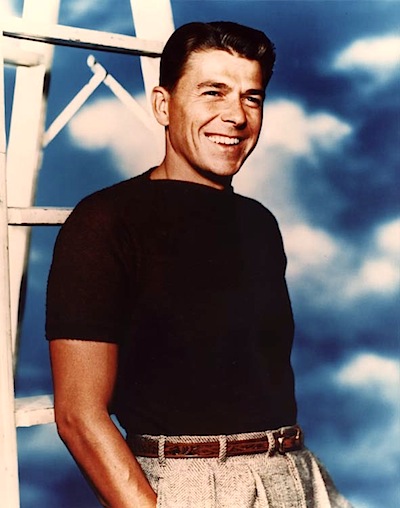
Two factors recently were vital in my own re-evaluation of Reagan as a star. First of all, Turner Classic Movies several years ago devoted an entire month to Reagan’s films – several of which only recently became available on DVD – and so I finally got the chance to record and watch a lot of them in an organized, sustained fashion. Also: in 2008 author Marc Eliot released a superb account of Reagan’s life and career in Hollywood, called Reagan: The Hollywood Years. Put together, the picture that Eliot’s book and Reagan’s own films create is one of an engaging, sympathetic star whose career – ironically enough – might have reached much greater heights had he not been ‘distracted’ by politics, particularly in the form of Reagan’s involvement in Hollywood’s complex labor disputes in the 1940s. Indeed, one of the many ironies of Reagan’s career in Hollywood is that as an eight-term SAG president Reagan spent an inordinate amount fighting other people’s battles, when he perhaps should’ve instead been fighting Jack Warner in order to get better roles for himself – roles which Reagan manifestly deserved, in my opinion.
Nonetheless, Reagan was a major Hollywood player during his heyday of the early 1940s. How big was he? In 1942, right after the release of King’s Row, Reagan’s agent – the powerful Lew Wasserman – signed him to Hollywood’s first $1 million contract of the 1940s, and Reagan was soon under consideration for the lead in Casablanca. What happened afterward, however, was that America’s ongoing war effort created a cascading series of changes in Reagan’s career that led him, ultimately, to lose professional momentum – right as people like Humphrey Bogart, John Wayne and Gary Cooper were gaining it. Reagan nevertheless forged ahead, and still banged out some fine pictures all throughout the 1940s and early 1950s – even as political battles of the era increasingly consumed his time.
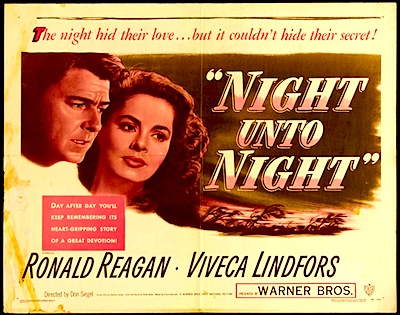
I’d like to point out a personal favorite of mine from this period: a brooding little noir romance called Night Unto Night (1949), directed by Don Siegel. The film stars Reagan as a terminally ill doctor suffering from epileptic seizures. He travels to the Florida coast to try to find some solace as his condition deteriorates, and there he falls in love with Viveca Lindfors (who was actually married to Siegel at the time) – who’s dealing with her own problems, having just lost her husband during the War, and yet still occasionally hearing her husband’s ghostly voice at night. Complicating matters further his Lindfors’ saucy, vixen sister, played by the strikingly attractive Osa Massen (sci-fi buffs will remember her from Rocketship X-M) who spends most of the film coming-on to Reagan like a cat in heat.
The film takes place mostly in a dark mansion along a storm-swept stretch of Florida’s coast, and has a kind of hypnotic quality to it – a dark romanticism of chiaroscuro lighting, subjective camera angles and sound design – with Reagan bringing a psychological intensity to his role that reminds one of his friend and contemporary William Holden, when Holden was at his peak in the 1950s. Reagan as the doctor is alternately stoic and terrified at his own fate, and deeply ambivalent about dragging Lindfors into his own personal tragedy so soon after she’d suffered one of her own. At the same time, he recognizes his own role in reviving her otherwise moribund spirits, and this makes his predicament all the more poignant.
Reagan’s performance in Night Unto Night is one of the better film noir performances of that period, fully of a piece with work by other noir stars like Glenn Ford or Dennis O’Keefe, and he should get more credit for it. Reagan and Lindfors (and, for that matter, Reagan and Osa Massen) make a genuinely smoldering couple – and I highly recommend this film to anyone still in doubt as to Reagan’s merits as a star.
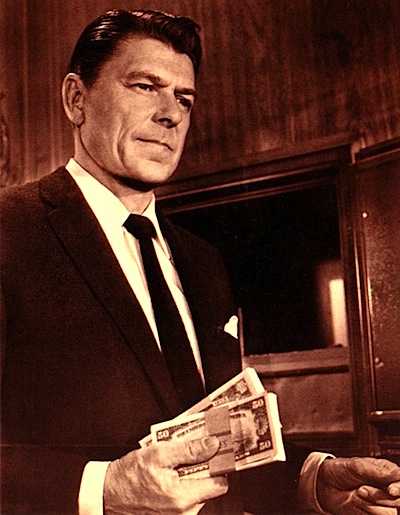
And, while we’re at it, I should mention the other film Reagan made with Don Siegel, which would actually be Reagan’s final acting performance – as gangster Jack Browning in 1964’s The Killers, based on the Hemingway short story. The Killers is the film that makes one speculate as to what an incredible career Reagan might’ve had if he’d turned to playing villains, because even in a film featuring stand-out performances by Lee Marvin, Angie Dickinson, John Cassavetes and Clu Gulager, Reagan absolutely steals the show as a ruthless and sardonic mobster out to pull off a major truck heist. In The Killers Reagan shows the side of himself that I liked most as a teenager when he was President: his toughness, his merciless wit, and a certain old-fashioned professionalism. Plus, Reagan somehow became more handsome as he grew older – craggier, his age-lines giving his face a sharper, more pleasing definition. (Someone should’ve thought to cast Reagan as Dick Tracy during this period.) Reagan in The Killers is what a lot of villains in Tarantino movies are trying to be, but never fully are: cool, in command, and macho as hell. It’s another stand-out noir performance from Reagan which, in my opinion, deserves more credit than it’s gotten over the years.
I could go on, but you get the point: Reagan was a fine star, by no means a ‘failed actor’ as some would have it, and the best testimony to his abilities are his films. And, on this point, LFM readers should be aware that Warner Brothers recently released some rare Reagan classics on DVD, and you can read the estimable Lou Lumenick’s reviews of that new set and other Reagan rarities now available from the Warner Archive Collection (such as Night Unto Night) here.
Also, news arrived this week that Robert Forster will soon be playing Reagan in a new one-man stage show and film (see here), and new Reagan documentaries are also popping up everywhere. Make sure, however, not to watch Eugene Jarecki’s documentary on HBO; Jarecki should not be trusted with this material, after the hack job he did on America’s Cold War effort in Why We Fight (a shameless pilfering of the title from Capra’s far better, more honest film). Instead, take some time today if you can to simply watch Reagan in one of his own films – my personal favorites are the ones he made with Errol Flynn. The films are great fun, and are a wonderful testimony to Reagan’s talent – and to what might have been, had his career not turned in a very different direction …
• And now to Clint Eastwood. Clint gave an interesting interview last week to the Wall Street Journal on his forthcoming J. Edgar Hoover biopic, which will star Leonardo DiCaprio – and also, as of recently, Naomi Watts and Ken Howard. In this interview, Clint gives what is arguably the most complete statement of his political worldview in years. I found him to be sober and restrained – but also a bit all-over-the-map, difficult to pin down.
Clint is someone who has traditionally been pegged as a ‘Hollywood conservative,’ a Cold Warrior and lone Republican holdout in a liberal-dominated industry. Actually, though, there’s always been a good deal of what I could call Steinbeck-style, Depression-era liberalism to Clint that seems to have become more pronounced as the years go on.
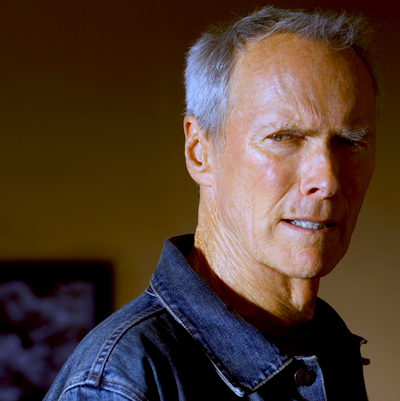
In this recent interview he comes across as relatively cool toward conflicts like the Iraq War and the Korean War, for example, particularly with respect to the burdens these wars put on the average fighting man. I understand that perspective, and it’s one that he brought to Flags of Our Fathers (although very different from what he did in Heartbreak Ridge), but it creates problems when it comes to America’s ongoing need to project force in dangerous parts of the world. Even Obama has come to recognize the necessity of fighting in Afghanistan, for example – an environment that puts extraordinary burdens on our fighting men. Clint seems to have forgotten that our current military is a volunteer force, not the conscripted force he was in while stationed up at Ford Ord in the Army back in the early 50s. And based on re-enlistment rates in the armed forces over the past decade, it seems that our fighting men believe in their current mission.
In any case, you might ask why any of this matters – Clint’s a filmmaker, after all, not (any longer, at least) a politician. Well, it very much does matter because he’s about to make a big-budget biopic of J. Edgar Hoover, a film spanning Hoover’s entire 40+ year career – a career that helped define the domestic profile of the entire Cold War era. And he’s making this film with arguably the biggest male star in the world, and a lot of people who are never going to read about Hoover or the Soviet-era threats he confronted are instead going to watch this movie and assume that what’s being depicted is at least semi-accurate.
So people need to keep a careful eye on this film, and on what its director is saying – even when it’s Eastwood saying it. I unfortunately don’t always have the sense lately that Clint’s minding the store in terms of what his films are saying – or perhaps maybe I’m worrying that he is the minding the store, and is in the process of shifting his worldview quite dramatically from what it was back during the 70s and 80s, before he was the darling of the Hollywood establishment – and people like Sean Penn and Paul Haggis and Tim Robbins became eager to work with him. In any case, I recommend that you read the interview and judge for yourself.
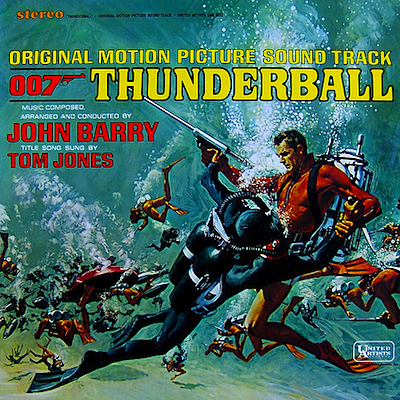
• A lot is suddenly happening on the James Bond front. Rumors are now swirling that Javier Bardem may be signed as the new film’s villain, and Ralph Fiennes may get involved with the film, as well. Everyone is speculating that director Sam Mendes may be pushing the series in a more dramatic direction – which is fine, but I’m also hoping that Mendes understands that Bond movies should also be light on their feet and amusing, something Mendes’ films have never been (being, instead, ponderous and dull-witted). We’ll see. Oh, and Judi Dench has signed back on.
In classic 007 news, the wonderful Bond composer John Barry has passed away, and we wish his family our condolences. Barry was an essential ingredient in the Bond formula for decades, and leaves behind him a rich musical legacy; he will certainly be missed. Also: if you’re in the mood for classic Bond, watch this interesting recent interview with production designer Ken Adam, who did so many of the great sets from the Connery films, as well as the War Room set from Kubrick’s Dr. Strangelove.
• This is so incredibly pathetic: Captain America: The First Avenger will apparently only be called The First Avenger in Russia and the Ukraine, as Marvel and Paramount have apparently caved. Way to go, Hollywood! Champions of free speech, as always. If the title Captain America: The First Avenger isn’t mellow enough for the Russians, maybe Paramount could re-title it Captain Redondo Beach: First in the Water. Just sayin’.
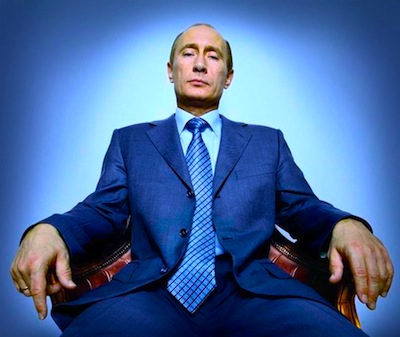
Meanwhile, Putin apparently had copies of a new documentary critical of his regime (re: the Khordorkovsky case) actually stolen in Berlin – while he’s simultaneously demanding that the number of movie theaters in Russia be doubled. I guess you can never have enough empty theaters for Burnt by the Sun 2.
• … and speaking of Russia, scribe Steve Zallian (Mission: Impossible, Clear and Present Danger, Schindler’s List, The Falcon and the Snowman) has apparently been tapped to re-draft the Jack Ryan reboot (starring Star Trek‘s Chris Pine), titled Moscow. Good choice. Maybe the young Jack Ryan can steal back the Khordorkovsky documentary.
• Not to miss a publicity opportunity, the ReelzChannel is now marketing the new Kennedys miniseries as featuring the Kennedy family’s “mob associations, the drugs and the women.” Hey! And here I thought this series was just going to show 8 hours of shaky home movies of beach football on Cape Cod! You mean the Kennedys actually had mob ties, and lots of sexy dames with beehive hairdos hanging around? I’m scandalized! How dare they show this on our public airwaves?!
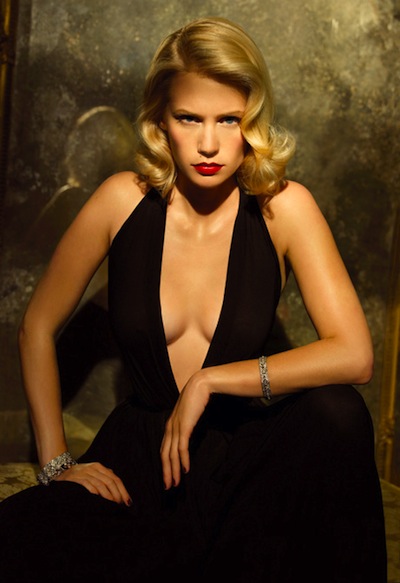
• I wasn’t aware of exactly how 60s-Cold War inflected the new X-Men: First Class film was going to be. Here’s how the film’s director, Matthew Vaughn, describes it:
Calling it “X-Men meets Bond, with a little bit of Thirteen Days thrown in for good measure”, the film will follow the burgeoning relationship between a young Charles (Professor X) and Erik (Magneto) from 1942-1962, and it will all be done without flashbacks.
“In the beginning of the film, no one knows that mutants exist, and all the mutants don’t know that each other exist. They’re all in hiding. Kevin Bacon plays a very megalomaniac mutant [Sebastian Shaw] who decides that he can take over the world and that mutants are the future. Erik and Charles then meet each other and hook up with the CIA to try and prevent World War III. You find out everything about what went on between Erik and Charles” says Vaughn. So it appears the CIA are the ones who develop the X-Men’s technology.
Vaughn calls Michael Fassbender’s turn as Magneto very reminiscent of old school James Bond – “I basically molded a young Magneto on a young Sean Connery. He’s the ultimate spy — imagine Bond, but with superpowers. For me, Magneto is the good guy in the film, but he’s a sort of a good bad guy. He literally kicks off the movie, and Xavier goes along on the ride trying to figure out what the hell is going on, and trying to persuade Erik that you don’t have to kill everyone.”
So in the spirit of such retro-Cold War/60s nostalgia, X-Men: First Class‘ January Jones will be today’s pin-up. Isn’t this a great picture? Here’s the key to this picture, aside from the nicely plunging neckline: she’s not smiling, and she looks like a hard-case, sort of like what I imagine Dagny Taggart would look like. Women smile too much nowadays, and it makes them less sexy. Toughen up, ladies.
And that’s how we close out this Extended Cold War Update! in honor of America’s Greatest Cold Warrior, and a very fine movie star: Ronald Reagan.
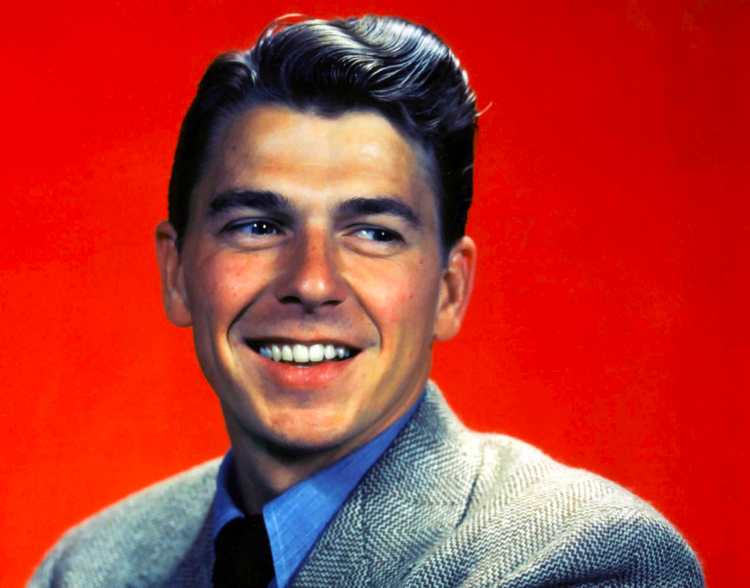

Wow … that’s an awesome entry to the Cold War Alert.
That Eastwood interview was definitely all over the place, and I’m still not sure where I sit with the Hoover project.
On one hand, I really can’t think of a film that examines the FBI (besides maybe “Public Enemies”), but on the other hand, I have a feeling this film will focus more on how futile it was to root out Communists in our government — because we just know there weren’t any, and any attempt to show otherwise is just fear-mongering and paranoia … right?
I’m a died-in-the-wool Reagan conservative and a child of the glorious ’80s, but the Libertarian in me has never been comfortable with the idea of a federal police force. The constitution deals with the very issues Hoover said were the reasons for the FBI, so I don’t see a constitutional mandate for it.
The CIA gets attacked in even the dumbest films (The Expendables, the Bourne films), and the FBI has been given a pass (maybe because it’s mainly a government branch, which makes it cool to the lefties … I don’t know). I wonder if Eastwood can look into this institution through a truthful lens.
Thanks for the kind word, Vince.
I’m not really sure what to expect with the Hoover film, but one thing stands out: the casting of DiCaprio as Hoover. Being the narcissist that he is, I assume DiCaprio would not have taken the role it wasn’t going to make him look good, cool, glamorous. That’s an indication to me that Clint probably won’t go too far off the rails on this one in his depiction of Hoover. (Let’s face it, the real Hoover was not exactly a handsome fellow, was he?) We’ll see.
What I suspect, though, is that Hoover will probably be depicted as dashing and glamorous in his early years fighting rum-runners, etc. Then, in later years fighting the communists, he’ll be depicted as bloated, gay and paranoid.
Judi Dench has signed back on
Cue Darth Vader voice: “NOOOOOOOO!”.
In the real James Bond movies, not the annoying PC versions, M is a crusty admiral who has probably seen real action in the war. The Dench character is the default powerful movie female character who substitutes bitch for crust. I don’t blame Dench as that type of stock character has been created by male screenwriters and directors who likely have never worked for a powerful woman before in their lives. In any case, M as a snotty Brit PC bureaucrat (male or female) damages the already tenuous hold the entire James Bond franchise has to what made the old movies great.
Great point, K! I completely agree. I also think that the M character in the original novels is one of the great treats of the whole series – a crustier and funnier character than he has the opportunity to be in the fast-moving films. Particularly in the original Moonraker novel, M really comes to life as a delightfully sharp and cantankerous old navy man, a perfect foil for Bond.
I agree that since Eastwood became a bona-fide Hollywood Great, the Leftist consensus has been trying to reclaim him, and he has been a little too happy to let them. Whenever he makes a film that sends out a non-conservative message, he defends it purely in the context of the narrative itself (ie: Million Dollar Baby isn’t pro-euthenasia, it merely shows the logical outcome of that one specific situation; it’s as if he’s denying that movies can impart broader messages at all.) Once in a while: fine. But it’s getting to be virtually every film now, and this project – from the writer of Milk, hardly bodes well. It’s a pity, because he was one of the great conservative icons of cinema, alongside Wayne and Heston. I still think he’s great, but I sense he is slightly too unaware of where his admirers are leading him these days.
I second your comments on M, and especially in the Moonraker novel, which has one of my favourite of all Bond-M encounters at the beginning. M summons Bond to his office and asks him what he knows of Hugo Drax. Bond reels off a list of glowing accomplishments, painting him as a man of unimpeachable loyalty, valour and trustworthiness. M says that he suspects him of wrongdoing, and Bond asks him why. “He cheats at cards,” M replies. Magnificent.
… and the card-game scene at the club is also wonderful, isn’t it? Moonraker is probably my second favorite Bond novel after Dr. No. It’s a pity that the 1979 Moonraker adaptation wasn’t more faithful, in my opinion.
I agree completely with your comments on Eastwood, Matthew. I would only add that one can detect the seeds of Eastwood’s ‘liberal’ turn as early as the 1970s, with movies like The Outlaw Josey Wales – a film I’ve never really liked.
The new tactic by the left is to speculate as to Reagan’s views regarding the issues of today. It’s even gone as far as a jaw dropping claim by Andrea Mitchell on MTP yesterday that Republicans are “trying to appropriate Ronald Reagan for their own political purposes now.” (http://www.mediaite.com/tv/peggy-noonan-scolds-andrea-mitchell-for-claiming-republicans-appropriate-reagan/) Peggy Noonan slapped her down like a puppy that’s pooed on your best rug. Then of course the disgraceful book by Ron Reagan Junior that recently came out. Typical liberal rewriting of history.
You also make a great point in your comments of the Eastwood interview and it’s something that I’ve observed that liberals like to throw out there. That our soldiers are being FORCED to fight these wars. They conveniently fail to mention that it’s a “VOLUNTEER” Army! No one is drafted! If you don’t want to fight then don’t JOIN!
NEWS FLASH! ALL WARS are horrible. It’s not all parades and pretty French girls kissing you on your cheek. And one last tirade, Flags of our Fathers sucked. Eastwood ruined a great book!
I think pretty French girls should be mandatory for returning soldiers, don’t you think?
It is really shocking, by the way, that Republicans would be ‘appropriating’ Ronald Reagan! Don’t these blinkered Republicans remember that Reagan was a Democrat as late as … the early 1940s?!
They don’t even have to be French!
Have you ever been to Paris? You wouldn’t be saying that if you had! I lived there once for 3 months, and I barely had enough time to …
… actually, I need to keep this site family-friendly. Oh well. 🙂
Sort of off the specific topic but related to Libertas, did the Super Bowl ad for the Motorola Android powered tablet remind you of THX 1138? All the “zombies” were dressed in sterile white hooked into what I guess would be iPods.Nice turn around of the Ridley Scott 1984 themed Super Bowl ad for Apple’s Macintosh.
I didn’t catch that ad. I’ll tell you, though, people having been riffing off that original Apple ad for years …
The Dench ‘M’ was based on Stella Rimington, the first female director-general of MI5 (yes, Bond works for MI6), and the first DG to be publicly named.
Unfortunately, that’s true-to-life.
Interesting detail, there, J. I hadn’t heard of any of this.